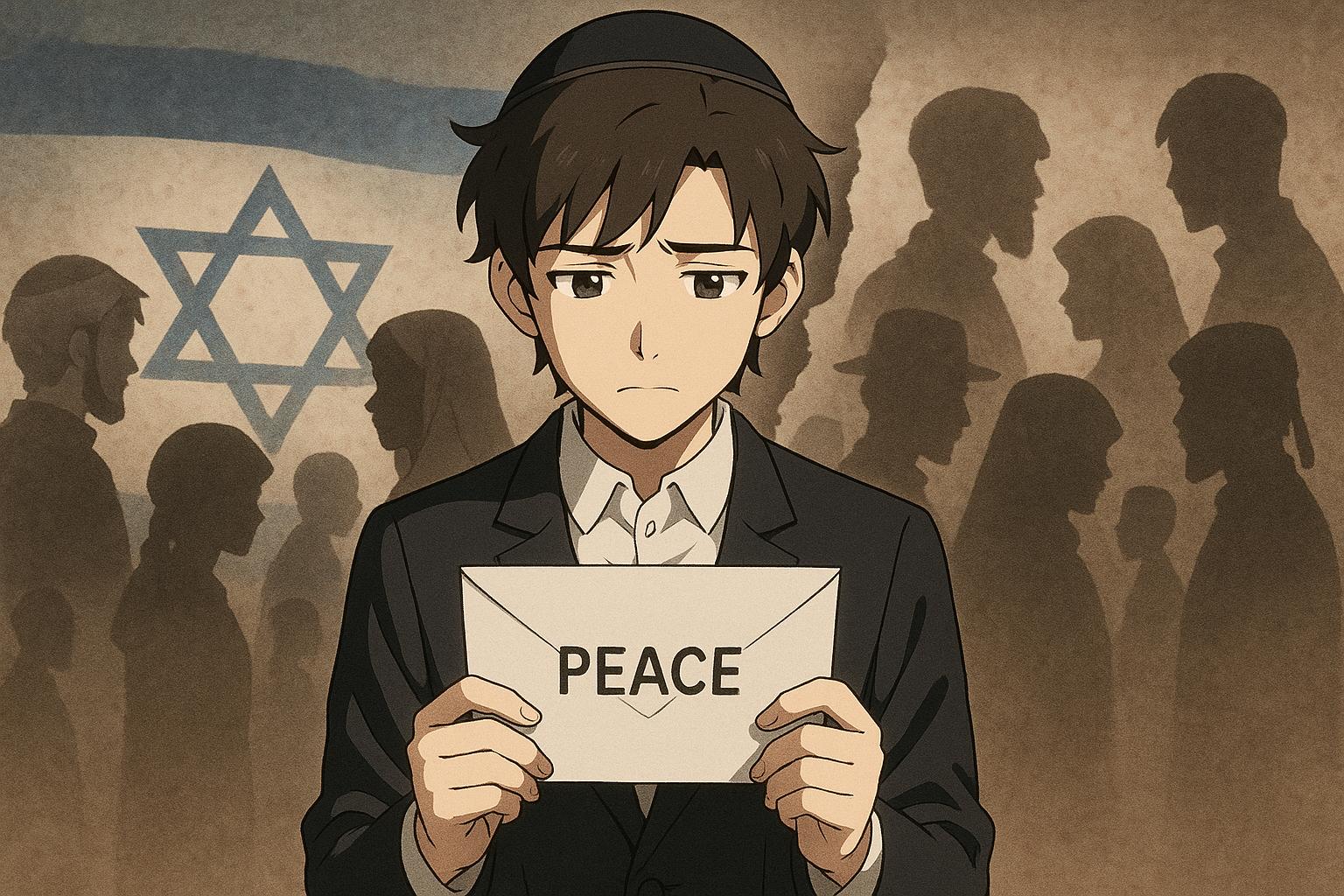The brutal and ongoing conflict in the Gaza Strip continues to elicit strong reactions across various communities, including within Britain’s Jewish population. This complexity has been underscored by a significant declaration made by 36 members of the Board of Deputies of British Jews, who have publicly called for an end to the escalation of warfare. Their statement, which lamented that “Israel’s soul is being ripped out,” has resonated beyond their immediate community, marking a notable moment in the discourse surrounding the Israeli government's actions.
Amidst the harrowing backdrop of a humanitarian crisis in Gaza, compounded by constant bombardments and food shortages, this dissent from within the Jewish community adds a critical layer to the discussion. The group’s letter, initially published in mid-April, reflects a profound moral distress over the violence that has engulfed the region since hostilities resumed in March. The signatories have expressed their longstanding support for Israel while simultaneously criticising the current right-wing government under Prime Minister Benjamin Netanyahu. They argue that the government's aggressive tactics not only threaten the values upheld by Zionism but could also ultimately undermine the legitimacy of the state itself.
The immediate backlash against the letter illustrates the prevailing tensions within the Jewish community and raises vital questions concerning the boundaries of acceptable discourse. Phil Rosenberg, president of the Board, has initiated disciplinary proceedings against the signatories, alleging that their stance may undermine solidarity with Israel. The ensuing conflict has seen some members likening their peers to "kapos"—a term fraught with historical connotations about betrayal and collaboration during the Holocaust—illustrating the deep emotional stakes involved in these discussions.
Notably, many signatories identify as Zionists and initially supported military actions in response to violence from Hamas. Their current stance, which critiques the methods employed by the Netanyahu administration, suggests a nuanced understanding of the differences between supporting a nation and endorsing its leadership's policies. This sentiment aligns with polling data indicating widespread concern among UK Jews about Netanyahu's political motivations, with a significant majority suggesting that his priorities may not fully reflect the interests of the Israeli populace.
As the discourse unfolds, it is evident that many within the UK Jewish community are grappling with a desire to support Israel while also critically evaluating the actions of its government. Rabbis and activists, including those from organisations like Na’amod and Yachad, are actively advocating for justice and security for Palestinians, further highlighting this internal struggle. Their engagement signals a broader movement among diasporic Jews to engage critically with Israel's policies while advocating for peace and human rights.
This internal strife among British Jews appears set against a backdrop of significant international scrutiny. Recently, UK Prime Minister Keir Starmer joined leaders like Emmanuel Macron and Mark Carney in calling for an end to the escalation and consideration of Palestinian statehood. Netanyahu has responded vehemently, suggesting that such calls are misguided, accusing Starmer of aligning with Hamas and failing to grasp the complexities of the situation.
The context is further complicated by recent criticisms aimed at Starmer for his cautious approach following calls for accountability from the International Criminal Court in relation to Israeli leaders. This has raised questions not only about the Labour leader’s political strategy but also about the implications of his silence in the face of international legal developments.
Looking ahead, the upcoming plenary meeting of the Board of Deputies may prove crucial in shaping the organisation's future stance on Israeli government policies. While formal discussions around the complaints against the signatories will be curtailed, there still remains a palpable urgency to address the Board's role in representing Jewish sentiment concerning Israel. Given that a significant portion of the community appears aligned with the dissenting views expressed by the 36, the Board’s approach risks alienating many who feel that silence in the face of government actions is no longer tenable.
In this delicate moment, the voices of those advocating for peace and accountability within the Jewish community may very well reflect a growing consensus that the leadership of Israel must be held accountable for their actions. The ongoing humanitarian crisis in Gaza and the moral imperatives faced by supporters of Israel suggest that the dialogue surrounding this conflict will be increasingly fraught with complexity, underscoring the need for an open and robust community discourse that addresses both the right to defend a nation and the imperative to uphold human dignity.
Reference Map:
- Paragraph 1 – [1], [2]
- Paragraph 2 – [1], [2], [4]
- Paragraph 3 – [1], [3], [5]
- Paragraph 4 – [2], [3], [6]
- Paragraph 5 – [1], [7]
- Paragraph 6 – [1], [2], [3]
Source: Noah Wire Services
